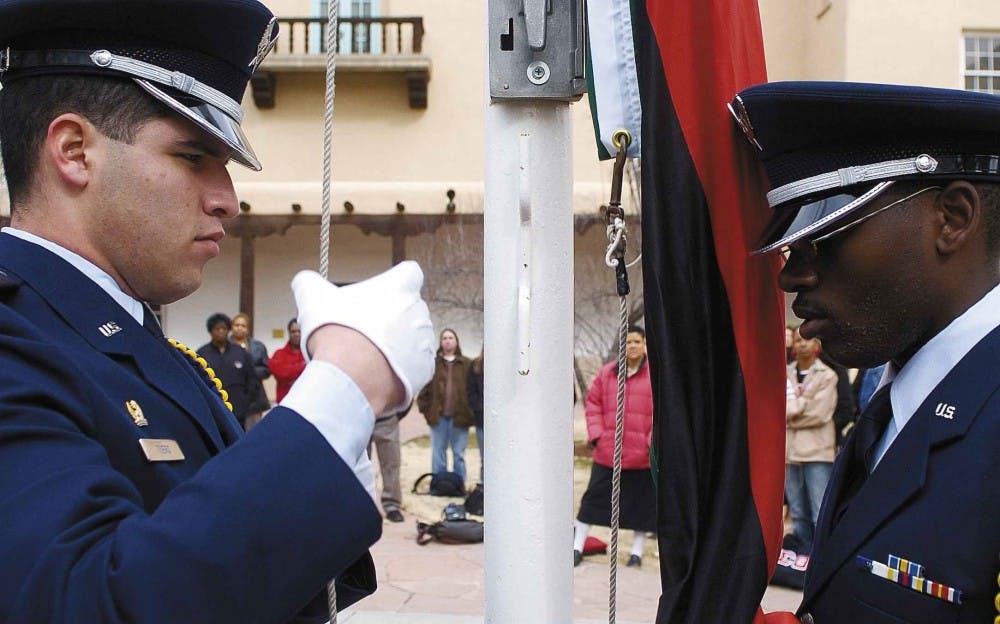by Marcella Ortega
Daily Lobo
Black History Month began Thursday at UNM with the raising of the red, black and green flag of Pan-Africanism.
"The red stands for the blood our people have shed for us in our past, present and future," said Scott Carreathers, director of African-American Student Services. "The black is for the people - we as a people - and the green for the land that we have today."
The flag, along with the New Mexican and American flags, was lowered to half-staff Thursday outside Scholes Hall.
Get content from The Daily Lobo delivered to your inbox
Thirty students, faculty and community members attended the ceremony that kicked off Black History Month at UNM.
Black History Month was founded by Carter G. Woodson in 1926 to celebrate African-American history. Woodson was an African-American author and scholar who established the Association for the Study of African-American Life and
History.
Throughout February, African-American Student Services will host a series of events and lectures, including "Black on Black Racism," Talent Night and a Gospel Extravaganza. Carreathers said the month is intended to distinguish African-Americans at UNM.
"It is very important for this University, and they need to make sure that they
recognize that it's not only during the month of February, but throughout the entire year that we are here, and we are here to stay," he said. "We have contributed a lot to this state. We have contributed a lot to this University."
Student Quentin Dorn said the month is important because it recognizes African-Americans' presence in the
community.
"Sometimes we go unnoticed because the numbers in New Mexico are so small," he said. "The African-American community has been around for a long time and has had a strong impact on the New Mexico community as a whole. Just one month out of the year, I feel that we should be able to acknowledge that African-Americans have played a significant role in American and New Mexican history."
ASUNM Senator Antoinette Murphy said it is important for students to know their heritage.
"I notice not only native African-American students from New Mexico, but a lot of natives of New Mexico have no idea what Black History Month is or have no idea what an African-American is,"
she said.
Murphy said a student asked her if Black History Month was only a week-long celebration.
"Now, when you start having people who are in college, and these are the next people who are representing us - our population, our government, our Congress - and they know nothing about Black History Month, that seems to be a problem," she said.
Murphy said it is essential to the future for people to research the past.
"History does repeat itself," she said. "It's just our duty to correct it, to make it better and not to romanticize anything. We need to just deal with what it was and make it better, but also
be aware."






